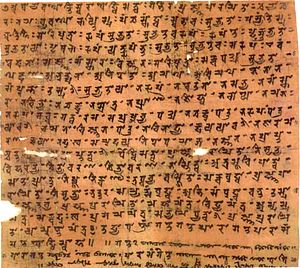Many non-Indians and even many Indians are not familiar with the scope, diversity, and breadth of India’s traditional and classical literature. Much of it is obscure due to a lack of accessible translations or because works gather dust in archives and museums without anyone to promote or market them. On the other hand, Western and classical Greco-Roman literature are available in multiple editions in English, and are often compiled into series, such as the Loeb Classical Library.
This fact has not escaped notice. I have personally thought a lot about this problem. Education should serve more than just a utilitarian, job-oriented purpose. Literature, especially classical works, plays an important role in shaping and inspiring educated minds and until recently it was considered essential for the educated to have a grounding in their civilization’s classical literature, whether it was the Iliad, the Shahnameh, the Ramayana, or the Analects. In modern India, however, the spread of modernization is making it ever more difficult for educated Indians to access their own classical heritage. In India and indeed in the rest of the world, the spread of pop culture (not that this is inherently bad) and a utilitarian attitude towards education risks creating a society of philistines.
This problem was noted by Rohan Murty, a Junior Fellow at Harvard University, and the son of Narayana Murty, the founder of Infosys, one of India’s largest companies. Rohan Murty noted the lack of access to India’s classical literature, saying:
“I wondered why we weren’t reading our own classics? I bet my generation has never heard of great Indian texts nor ever read them — like the Nyaya tradition, whose construction of logic almost 1,500 years ago was spectacular, and still a challenge to modern logic. Even early calculus was phenomenal. We should read Pythagoras and Euclid, but why not also Aryabhata or the Akbarnama? I was looking for an India narrative, not always a Greek and Latin one.”
As a result of Murty’s insight, his family donated $5.2 million to Harvard University in order to found a new publication series that would focus on systematically making classical Indian literature (in multiple languages and not just Sanskrit, the classical language of ancient India) accessible in English to a global, reading public. The new series, the Murty Classical Library of India (MCLI) will feature classical works of Indian literature in their native languages and scripts with English translations on adjacent pages. The first five books in the series will be released by Harvard University Press in January 2015. The five volumes, whose diversity and scope are a glimpse of what is to come, include Punjabi Sufi poetry by Bulleh Shah, a Persian history of the reign of the Mughal Emperor Akbar, a Pali anthology featuring the first Buddhist literature by women, and works by writers of Telugu and Old Hindi, Allasani Peddana, and Surdas.
While some classical Indian texts have been previously translated and have reached a global audience, most of those are of a religious or philosophical nature. This gives the impression that India does not possess much literature, and definitely not literature on non-religious topics. However, this is not true and is a consequence of selection bias. According to Dr. Sheldon Pollock, the editor of the MCLI, India possesses “the single most complex and continuous multilingual tradition of literature in the world.”
In 2015, therefore, we can look forward to the revival and spread of classical Indian literature, which has been neglected for too long. Hopefully many people, Indians and non-Indians alike, will discover and enjoy the Indian classical tradition, deriving both entertainment and intellectual nourishment from its numerous works.

































